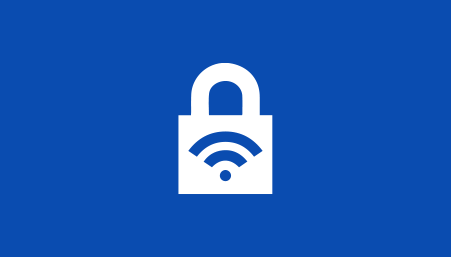A Complete Guide to WiFi Network Security Methods

With so much of our lives being dependent on broadband wifi for work , education, leisure, and communication, we simultaneously need to also learn how to protect our wifi network. The hidden danger of hackers who could steal information and exploit personal data is ever-present and even the best wifi connection can’t stop them. So how do internet providers make sure that the broadband wifi is safe and secure? To begin, let us first understand how wireless security methods work to help assess what kind of security is best for you. Wireless security is a mechanism put in place to prevent unwanted users, in the form of hackers, from gaining access to your home broadband wifi. By limiting access to only you, and those who you give access to, you can safeguard your wifi network along with your personal data. There are four types of wireless security available for you to choose from:
WEP stands for Wired Equivalent Privacy.
This is the original wifi security measure and while most other devices have matured to more modern forms of wireless security, WEP works well for older devices whose broadband wifi still stands at risk. Unfortunately, it is also the least secure method as hackers over time have learned to crack it, making it important historically but a poor choice for consumers.
WPA stands for Wifi Protected Access
As loopholes and flaws emerged in WEP, WPA rose to fix them and provide a safer alternative. By creating a changing 128-bit key, known as the Temporal Key Integrity Protocol (TKIP), in comparison to WEP’s stationery key, the WPA proved to be a more modern security measure that was harder to break into, resulting in a better level of security for your home broadband..
WPA2
As technology developed further, the WPA2 was introduced in 2004 and added more features to wifi security by replacing WPA’s TKIP with the CCMP - the Counter Mode Cipher Block Chaining Message Authentication Code Protocol. Within WPA2 are two other broadband wifi security measures, the WPA2-PSK, and the WPA2-Enterprise.
WPA2
As technology developed further, the WPA2 was introduced in 2004 and added more features to wifi security by replacing WPA’s TKIP with the CCMP - the Counter Mode Cipher Block Chaining Message Authentication Code Protocol. Within WPA2 are two other broadband wifi security measures, the WPA2-PSK, and the WPA2-Enterprise.
The WPA2-PSK stands for Pre-Shared Key and it requires a security password in order to access the wifi network. This is what we now know as the modern password-protected wifi connection, it’s what saves us from sharing unlimited wifi plans for home with the neighbourhood! As long as you trust those with who you share the password, the WPA2-PSK is a safe residential security measure for you to choose. The WPA2-Enterprise authenticates all wifi network users through a RADIUS server. By authenticating all devices before they are allowed to access the broadband wifi connection, a safety tunnel is created that prevents unwanted users from entering. This makes it a very safe choice for consumers looking to protect their data.
WPA3
However, the best choice comes in the form of the WPA3, the latest security measure that provides even greater password protection, increased security for enterprise networks, and individualised encryption to ensure that your data is always safe. The WPA3-PSK improves upon the previous method by strengthening the authentication process further. By ensuring interaction from the user during access attempts, the lengthy process discourages hackers by slowing them down significantly. The WPA3-Enterprise offers small changes by ensuring a process to confirm the identity of the server to which the device is connecting.
Now that you know the four big methods of network security, you can see the tiers of safety for yourself and can then weigh the features according to your specific security needs and decide on the perfect one to fit the best wifi connection for your home. With a valid security measure in place, you can be secure in the fact that your home wifi network is safe and protected, and so is your data. To learn more about broadband, click here , to go to Hathway’s safe wifi options.
